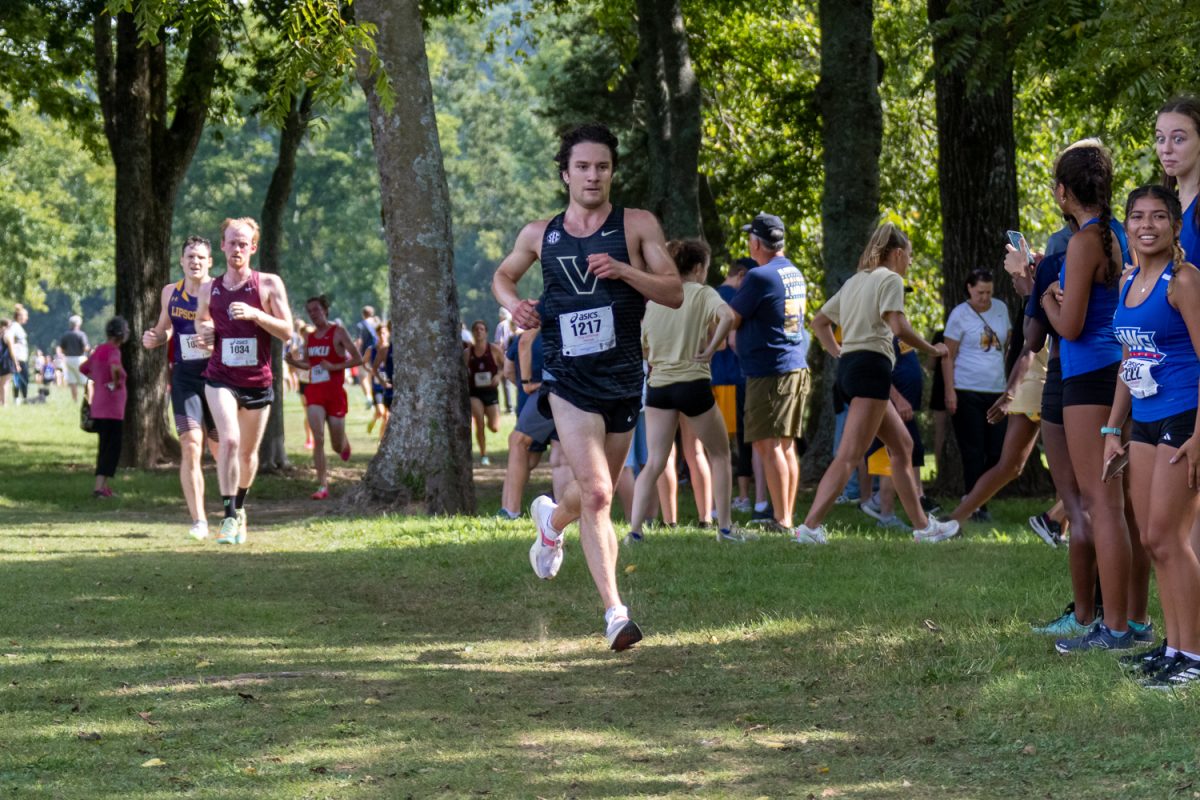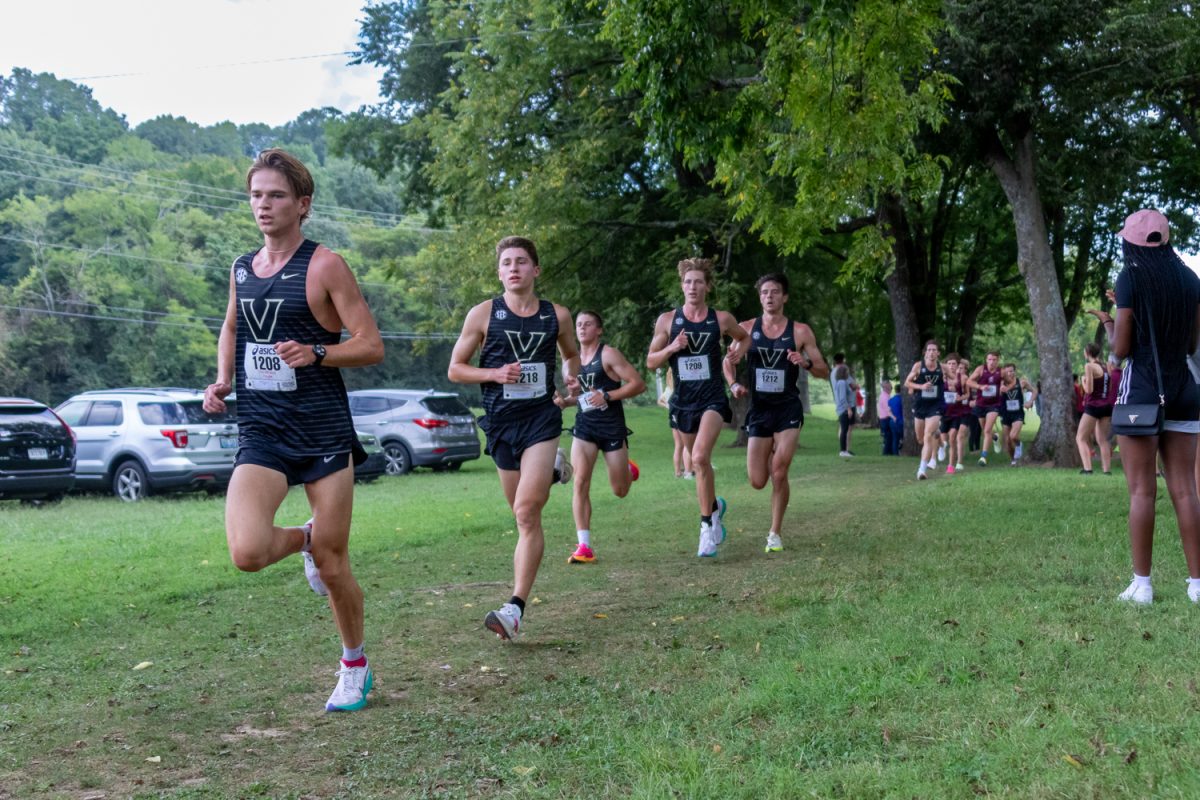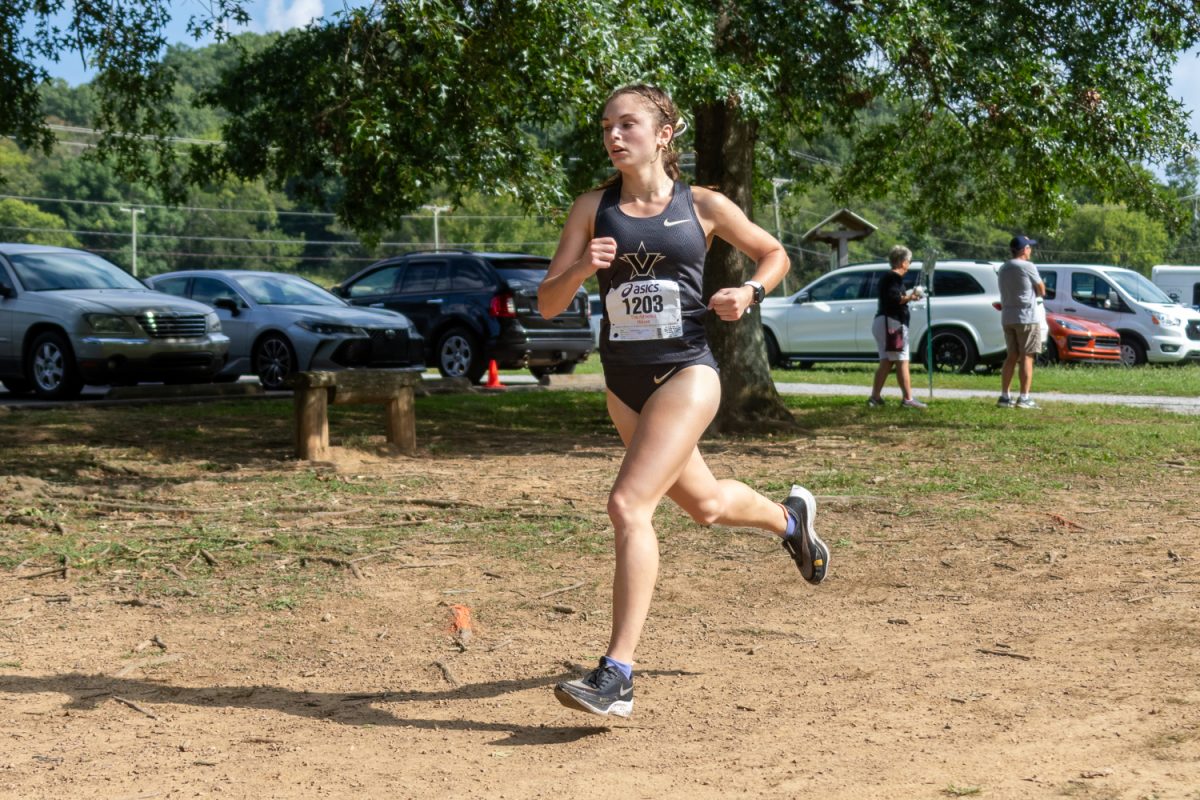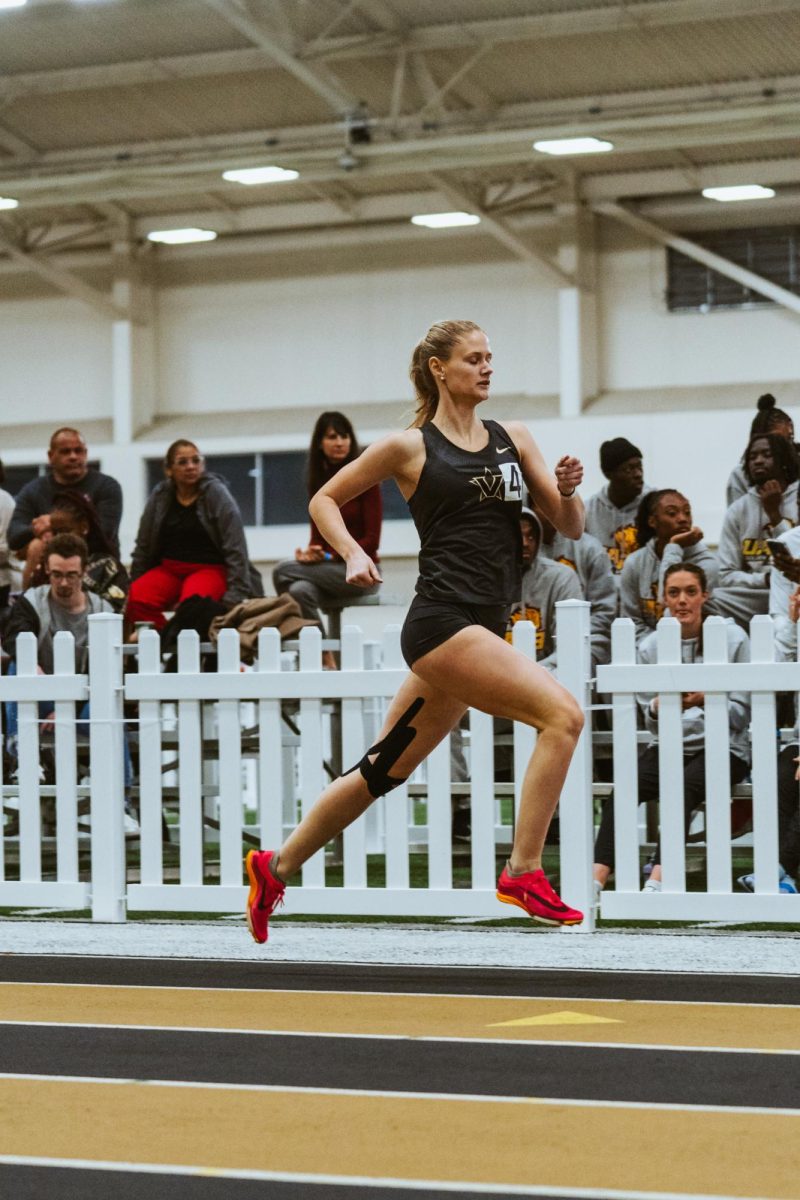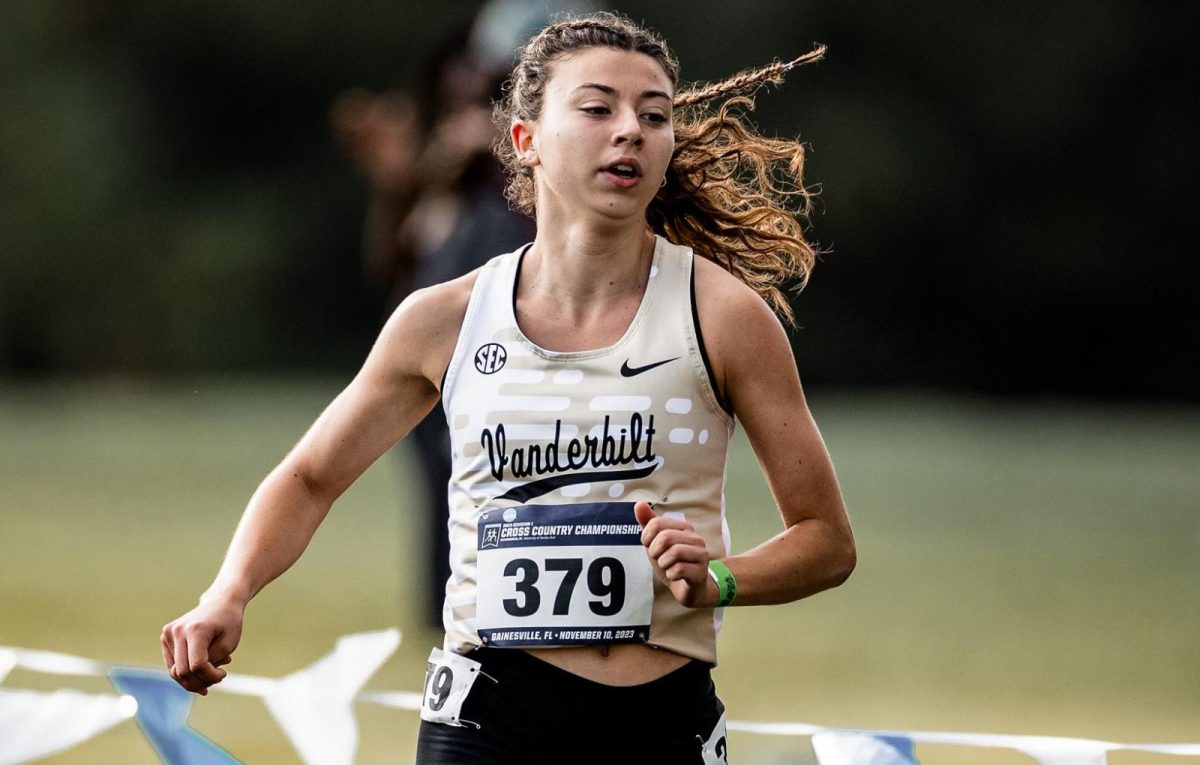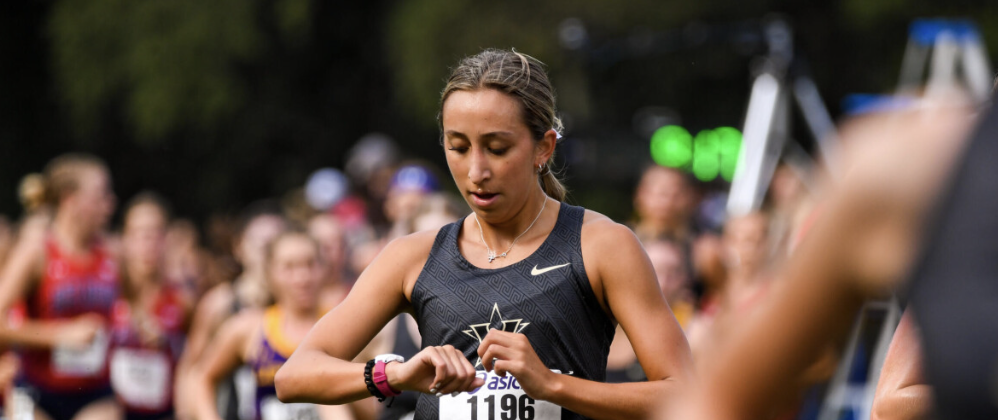As the season dawned in late August, steady improvement was the goal for head coach Althea Thomas’ third year at the helm of a historically weak program. Three months later, with the season over, the extent to which that goal was accomplished is an open question.
With only three regular-season meets, the SEC Championships and the NCAA Regionals, the campaign was, ironically, more of a sprint than a marathon — and the sprint began on shaky footing. At the Belmont Opener, both the men’s and women’s teams took a step back from their performances last year but still finished in third and second place, respectively.
The Commodores got back in rhythm two weeks later at the Mountain Dew Invitational in Gainesville, Florida. Spearheaded by graduate student Caroline Eck, the women’s team took home second place out of a field of 14 teams that included Power Five opponents Florida and Georgia Tech. Lacking their counterparts’ depth of experience, the men trailed the women’s finish once again by placing sixth out of 15 teams.
Despite the sting of standing lower on the totem pole than Division 2’s Flagler College and Embry-Riddle Aeronautical University, the Mountain Dew Invitational marked the grand appearance of freshman Jack DesRoches. The New Orleans native was the first male Commodore to cross the finish line and came in eighth overall — the best finish of any freshman at the meet.
Two weeks later, DesRoches would again be the top runner on the men’s team, earning him the honor of SEC Freshman of the Week. The rest of the team would not fare as well at South Bend’s Joe Piane Invitational, where the Vanderbilt men and women would finish in 10th and eighth, respectively. Though this may have been an improvement from both teams’ 13th-place finishes from a season ago, the Commodore men remained the lowest-ranked Power 5 program at the meet.
With the regular season drawing to a close after three competitions, Vanderbilt pivoted to the SEC Championships with an eye on improving upon last year’s men’s and women’s performances of 12th and ninth, respectively. The women did just that. Led by Julia Rosenberg and Cameron Fawcett, the Commodores finished seventh — including above Thomas’ alma mater of LSU.
The same fate did not befall the men’s team. With top finisher Andrew Pahnke placing only 83rd among all runners, Vanderbilt finished narrowly in last behind LSU, with whom they tied for last a year prior.
The NCAA South Regional, the final competition of the year, was another mixed bag. With a placement of 12th out of 29 teams, the Commodore women declined relative to their 10th-place finish a year before. Nevertheless, Rosenberg finished with a top-40 time among all runners, and the Commodores could still boast of finishing above SEC foes Georgia and Mississippi State.
After only competing as individuals in last year’s regionals, any placement was a technical step up for the Commodore men. That improvement would be to 14th place out of 23 teams — better than Miami, but worse than Belmont, East Tennessee State, Lipscomb and Middle Tennessee State.
With a roster full of freshmen and sophomores, improvement appears on the horizon for Vanderbilt Men’s Cross Country. DesRoches and fellow freshman Jackson Scruggs were highly prized additions to the squad, and the Thomas regime has shown a knack for bringing in graduate students from the transfer portal.
On the women’s side, the departure of veterans like Eck, Jenna Holland and Ella Lambert will be an unquestionable blow to the team’s prospects. No freshman appears ready-made to take over the mantle, but another year out of Rosenberg and Fawcett will keep the group above water. The need to bring in new recruits to restock the reserves looms large for both teams.
The more things change, the more they stay the same. Vanderbilt Cross Country has spent almost the entirety of its existence as a bottom dweller in a loaded SEC. Clearly, the goal is to change that, but a break in the storm still seems far out across the horizon.











